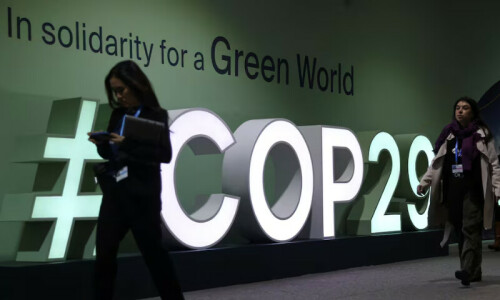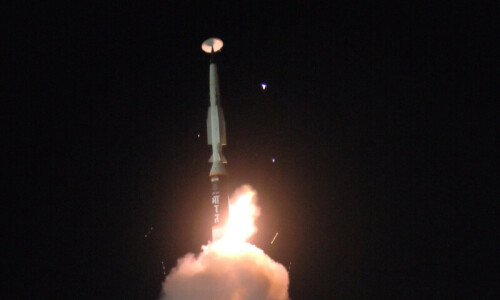DHAKA: Hundreds of people staged protests in the Bangladeshi capital on Wednesday against a shortage of drinking water, witnesses said, defying a ban on such demonstrations.A falling water table and lack of power to run water pumps has led to a serious shortfall of drinking water in Dhaka, a city of 11 million, officials said.
“How can we pump enough water while there is no electricity to run the pumps,” said an official with the Dhaka water and sewerage authority.
“Many pumps remain shut or cannot operate up to their capacities because of shortage of power,” said the official who asked not to be identified.
Hundreds of residents, carrying empty water cans, gathered in the streets demanding an end to the water and power shortages that have in the past sparked violent protests.
Authorities have asked the army to help supervise the distribution of water in the city. Bangladesh is governed by an army-backed interim administration that has under a state of emergency imposed last year banned all public protests.
“The situation is turning from bad to worse every day, we stand in long queues for hours for water,” said rickshaw-puller Mohammad Salam outside a roadside water pump.
His wife and children were also standing in queues elsewhere in the city to obtain water. The Dhaka Water and Sewerage Authority is supplying 1.50 billion litres of water a day against a demand of 2.25 billion litres due to frequent power cuts and a fall in groundwater level, officials said.
Some 86 per cent of the capital’s water supply comes from underground sources but declining groundwater levels at the rate of three metres each year has worsened the situation.
A power official said the daily shortage of electricity in the city had soared to 1,500 megawatts because of lack of enough natural gas to run power plants.
“We have to cut down power production in several plants as Petrobangla is supplying up to 700 mmcf gas daily against our demand of 846 mmcf,” said Saiful Hasan Chowdhury, a deputy director at the Power Development Board.
The situation is still worse in the countryside with power only available for a few hours each day. Barely 40 per cent of the country’s more than 140 million people have access to power. Power shortages often spark protests in impoverished Bangladesh.
More than 20 people, mostly farmers, were killed in clashes with police, mostly in northern Bangladesh in 2006, during demonstrations demanding adequate power for irrigation.—Reuters












































Dear visitor, the comments section is undergoing an overhaul and will return soon.